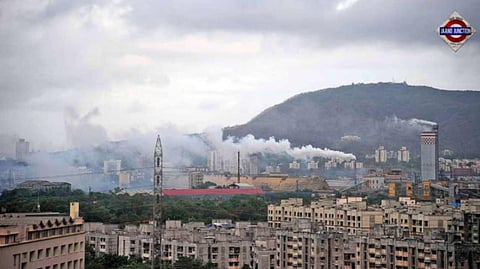

Construction activities, in both public and private zones, were suspended on Monday, with Mumbai’s air quality worsening in recent weeks. The BMC implemented these GRAP-IV measures in areas where the AQI exceeded 200, which is categorised as ‘poor’.
Construction work in Borivali East and Byculla has already been halted after the air quality index (AQI) in these areas consistently crossed 200. Municipal commissioner Bhushan Gagrani said: “In locations where the AQI surpasses 200, construction will be stopped immediately as per GRAP-IV norms. No stop-work notices will be issued in advance. Borivali East and Byculla are the first areas where this has been implemented."
The Brihanmumbai Municipal Corporation (BMC) said violation of these norms will result in severe consequences. Developers who continue work despite the restrictions will face action under Section 52 of the Maharashtra Regional and Town Planning Act (MRTP), which includes legal action and possible penalties.
So far, the civic body has issued ‘stop work’ notices to 286 developers across the city for failing to comply with its 28-point guide on combating air pollution. Gagrani said these rules will uniformly apply to all construction projects, including government initiatives.
“We are committed to reducing pollution from construction activities. Developers must follow the guidelines strictly. Any violations will lead to immediate action," he said.
Apart from construction, the BMC also stopped issuing permits for trenching work across the city. Trenching, which involves digging up roads for utilities or infrastructure projects, is a major contributor to dust pollution.
“We are witnessing large-scale concretisation in the city, which cannot be stopped entirely. However, trenching activities add significantly to pollution. Until air quality improves, no new permissions for trenching will be granted," he added.
In areas like Borivali East and Byculla, developers have 24 hours to bring pollution levels back to safer limits. The BMC is closely monitoring AQI in these zones to decide the next course of action.
Despite these measures, the civic body is yet to provide detailed information on specific construction sites where work has been suspended. Asked about implementation of GRAP-II and GRAP-III measures, the BMC chief said the current focus was on GRAP-IV.
He said the aim is to tackle the most polluted areas first and prevent further deterioration of air quality. Mumbai’s air pollution has been attributed to various factors, including construction dust, trenching activities, and concretisation, he said. These measures are part of the BMC’s efforts to address the growing crisis and safeguard public health, he added.
